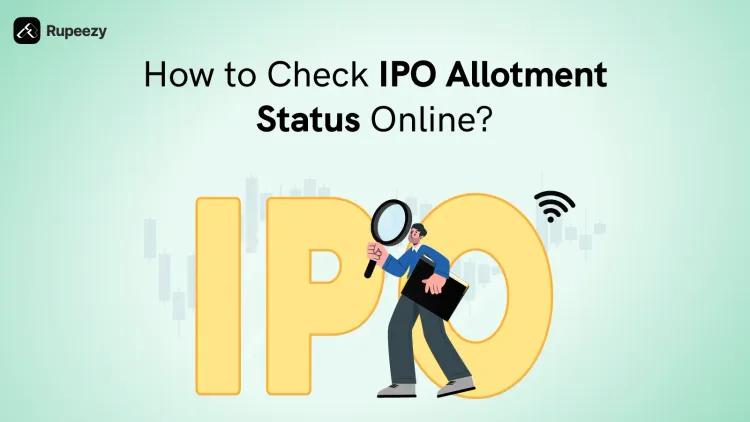Is Urban Company IPO Good or Bad – Detailed Review


00:00 / 00:00
Urban Company Limited's IPO is set to open its initial public offering from September 10, 2025, to September 12, 2025. When considering applying for this IPO, potential investors might have questions about whether the Urban Company IPO is a good investment and if it's worth subscribing to.
This article provides a comprehensive Urban Company IPO review, covering its business operations and fundamental analysis to help you make an informed investment decision.
Urban Company IPO Review
Urban Company Limited's IPO is a book-built issue of Rs 1,900 crore, consisting of a fresh issue of Rs 472 crore and an offer for sale of Rs 1,428 crore. The IPO will be open for subscription from September 10 to September 12, 2025, with a price band of Rs 98 to Rs 103 per share and a lot size of 145 shares. The company plans to use the net proceeds from the fresh issue for new technology development and cloud infrastructure (Rs 190 crore), lease payments for offices (Rs 75 crore), marketing activities (Rs 90 crore), and general corporate purposes.
Urban Company, formerly known as UrbanClap, is a technology-driven, online services marketplace. Its platform connects consumers with trained, independent service professionals for a wide array of home and beauty services, including cleaning, pest control, appliance repair, and hair grooming. The company also sells products under its "Native" brand, such as water purifiers and electronic door locks. It operates in 51 cities across India, the UAE, and Singapore, and has a joint venture in Saudi Arabia.
Financially, Urban Company has shown a significant turnaround from a loss-making entity to a profitable one. The company's revenue from operations increased consistently from Rs 636.60 crore in FY23 to Rs 1,144.47 crore in FY25. Most notably, it made a turnaround to a net profit of Rs 239.77 crore in FY25, reversing a net loss of Rs 92.77 crore in FY24 and Rs 312.48 crore in FY23. This turnaround was largely driven by a deferred tax credit, but the company also achieved a pre-tax profit in FY25. This shows a strong improvement in operational efficiency and cost management.
Key strengths of the company include its marketplace model with network effects, an established and trusted brand, a robust technology platform utilizing AI and machine learning for efficient matching of supply and demand, and a business model that empowers service professionals with training and higher earning potential. However, potential investors should be aware of risks such as a history of net losses and negative cash flows, dependence on independent contractors (gig workers) which could be affected by changes in labor laws, intense competition from both online and offline players, the risk of consumers and professionals circumventing the platform, and the limited operational history of new business segments like its "Native" brand products.
Company Overview of Urban Company IPO
Urban Company Limited, formerly known as UrbanClap, is a technology-driven, full-stack online services marketplace. The company's platform connects consumers with trained and independent service professionals for a wide array of home and beauty services, including cleaning, pest control, appliance repair, painting, skincare, hair grooming, and massage therapy. The company has also expanded its offerings with its "Native" brand of products, which includes water purifiers and electronic door locks.
The company operates in 51 cities across India, the United Arab Emirates (UAE), and Singapore, and has a presence in Saudi Arabia through a joint venture. Urban Company's business model is centered on ensuring a quality-driven, standardized, and reliable service experience for consumers, while empowering its service professionals with in-house training, access to technology, tools, and consumables, and providing them with opportunities for higher earning potential. The company's promoters and executive directors are Abhiraj Singh Bhal, Raghav Chandra, and Varun Khaitan.
Industry Overview of Urban Company IPO
Urban Company operates in the home services market in India, which is predominantly unorganized, fragmented, and offline. The sector is characterized by inconsistencies in service quality, pricing, and availability. This provides a significant opportunity for online platforms to standardize the market, improve the matching of supply and demand, and offer better earnings for service professionals.
The Indian home services market was valued at approximately $60 billion (Rs 5,100 to 5,210 billion) in Fiscal Year 2025 and is projected to grow at a CAGR of 10-11% to reach approximately $100 billion (Rs 8,400 to 8,580 billion) by Fiscal Year 2030. This growth is fueled by several macroeconomic and demographic factors, such as:
Rising Incomes and Consumption: Increasing disposable incomes, particularly among dual-income families and a growing number of middle and high-income households, are driving demand for convenience-led services.
Urbanization: Rapid urbanization and the growth of nuclear families create a need for reliable, professional services as people move away from informal social networks.
Digital Adoption: Widespread access to affordable smartphones and internet data has enabled the growth of a digital ecosystem, facilitating on-demand services and seamless digital payments.
The online segment of the home services market is still in its nascent stages, with an estimated penetration of less than 1% as of Fiscal Year 2025. This indicates a large headroom for growth for full-stack online platforms like Urban Company that can address the structural challenges of the traditional market and offer a superior value proposition to both consumers and service professionals.
Financial Overview of Urban Company IPO
Particulars | June 30, 2025 (Rs Crore) | March 31, 2025 (Rs crore) | March 31, 2024 (Rs crore) | March 31, 2023 (Rs crore) |
Revenue from Operations | 367.27 | 1,144.47 | 828.02 | 636.6 |
Adjusted EBITDA | 21.07 | 12.09 | -119.01 | -297.69 |
Adjusted EBITDA Margin (% of Revenue of Op.) | 5.74% | 1.06% | -14.37% | -46.76% |
PAT | 6.94 | 239.77 | -92.77 | -312.48 |
PAT Margin (%) | 1.74% | 19.01% | -9.99% | -43.02% |
RoE (%) | 0.38% | 13.35% | -7.18% | -23.33% |
Net Transaction Value | 1,030.61 | 3,270.91 | 2,563.91 | 2,077.95 |
The financial performance of Urban Company over the three fiscal years ending March 31, 2023, 2024, and 2025, and for the three months ending June 30, 2025, highlights a clear and significant turnaround in profitability and improved operational efficiency.
Revenue from operations shows strong growth, increasing from Rs 636.60 crore in FY23 to Rs 828.02 crore in FY24, and further to Rs 1,144.47 crore in FY25. This momentum continued into the first quarter of FY26, with revenue reaching Rs 367.27 crore. This consistent top-line growth reflects increasing consumer adoption and the scaling of the company's marketplace model.
Adjusted EBITDA demonstrates a dramatic shift from significant losses to profitability. The company reduced its loss from Rs 297.69 crore in FY23 to Rs 119.01 crore in FY24. In FY25, Urban Company achieved a positive Adjusted EBITDA of Rs 12.09 crore. This trend has accelerated in the first quarter of FY26, with Adjusted EBITDA reaching Rs 21.07 crore. The corresponding Adjusted EBITDA Margin has improved from a deep negative of -46.76% in FY23 to a positive 1.06% in FY25, and further to 5.74% in the latest quarter. This turnaround is a strong indicator of the company’s success in achieving operational leverage and cost control as it scales.
Profit After Tax (PAT) reflects a similar, impressive trajectory. The company moved from a large net loss of Rs 312.48 crore in FY23 to a reduced loss of Rs 92.77 crore in FY24. In a major turnaround, Urban Company reported a significant net profit of Rs 239.77 crore in FY25. This was primarily driven by a deferred tax credit of Rs 211.21 crore. However, even on a pre-tax basis, the company reported a profit in FY25. The positive momentum continued in the latest quarter with a PAT of Rs 6.94 crore.
Return on Equity (RoE) has followed the same positive trend, turning from a -23.33% in FY23 to a positive 13.35% in FY25, indicating that the company is beginning to generate healthy returns for its shareholders. The latest quarter shows a stable RoE of 0.38%. The Net Transaction Value has been in an increasing trend.
In summary, Urban Company has turned around its journey from a loss-making start-up to a profitable enterprise. Its strength lies in a combination of robust revenue growth, disciplined cost management, and a scalable business model that has allowed it to achieve operational leverage.
Strengths and Risks of Urban Company IPO
Let's delve into the strengths and weaknesses to assess if the Urban Company IPO is good or bad for investors.
Strengths
Marketplace with Network Effects: Urban Company operates a hyperlocal, multi-category platform that benefits from network effects. As more consumers use the platform, it attracts more service professionals, which in turn leads to faster fulfillment times and lower costs. This model strengthens brand loyalty and drives repeat usage. The company has fulfilled over 97.45 million service orders in India since its inception.
Established Brand and Consumer Trust: The company has built a strong brand, "Urban Company", that is recognized as a leader in the online home services market. This trust is built on a focus on quality, reliability, and convenience, as reflected by an average consumer rating of 4.79 on a scale of 5.0 in the three months ended June 30, 2025.
Robust Technology Platform: The core of the business is a technology platform that utilizes proprietary machine learning and AI algorithms. This technology enables efficient demand-supply matching at a micro-market level, streamlines the consumer journey, and provides service professionals with tools for scheduling, payments, and on-the-job assistance. The platform has also enabled product innovations like the "Co-Pilot" diagnostic tool for appliance repair.
Empowerment of Service Professionals: The company's business model is designed to empower its workforce. Service professionals receive in-house training and certification, access to quality tools and consumables, and opportunities for higher earnings. According to a Redseer report, professionals on the platform earn an average of 30-40% more than their peers in the unorganized sector.
Proven Path to Profitability with Operational Leverage: The company's scale and technological capabilities have led to improved profitability. The India consumer services segment's adjusted EBITDA margin (as a percentage of net transaction value) has improved from (9.72)% in Fiscal 2023 to 3.30% in Fiscal 2025. This operational leverage demonstrates the ability to manage costs as the business expands.
Risks
History of Net Losses and Negative Cash Flows: The company has a history of incurring net losses and negative operating cash flows. While it reported a net profit of Rs 239.76 crore in Fiscal 2025 due to a deferred tax asset credit, it reported a loss of Rs 92.77 crore in Fiscal 2024 and Rs 312.48 crore in Fiscal 2023. Failure to consistently generate profits and positive cash flow could adversely affect its long-term viability.
Dependence on Independent Contractors: The company's business model relies on a network of independent service professionals, not employees. Changes in labor laws, gig worker classification, or union activities could classify these professionals as employees, leading to higher costs, operational restrictions, and a fundamental change in the business model.
Intense Competition and Market Circumvention: Urban Company operates in an intensely competitive market with low online penetration, facing competition from both established offline players and other online platforms. There is a risk that consumers and service professionals may find a way around the platform to avoid fees, which could adversely impact the company's financial performance.
Limited Operating History in New Segments: The company has a limited operational history in new business lines like its "Native" branded products and its "InstaHelp" offering. The success of these new initiatives is yet to be proven and may not generate the expected benefits, which could negatively impact business results and financial condition.
High Marketing and Customer Acquisition Costs: The company spends heavily on advertising and sales promotions to attract and retain customers. While these costs as a percentage of revenue have decreased, a failure to effectively manage them or introduce new cost-effective marketing strategies could impact profitability. Advertising and sales promotion expenses accounted for 15.09% and 3.01% of revenue from operations in Fiscal 2025.
Strategies of Urban Company IPO
Grow the Consumer Base: The company aims to increase its consumer base by deepening its penetration in existing markets and expanding into new geographies. It plans to attract new users and increase the spending of existing ones through targeted marketing, cross-selling of services, and enhancing the overall consumer experience.
Expand Product and Service Offerings: The strategy involves continuously launching new products and services to capture new market opportunities. Recent initiatives include the "Native" brand for water purifiers and electronic door locks, as well as the new "InstaHelp" and "Revamp" offerings for on-demand home help and home painting/decor services.
Invest in Technology and AI: Urban Company plans to continue investing in its technology stack to improve operational efficiency, enhance service professional effectiveness, and drive cost savings. Key areas of focus include leveraging AI for improved service matchmaking, real-time quality control, consumer support, and developing new features like a multi-category checkout.
Enhance Service Professional Value Proposition: The company is expected to continue its focus on empowering its service professional network. This includes investing in training and upskilling programs, providing access to essential tools and consumables, and maintaining a competitive earnings potential to attract and retain top talent.
Capitalize on Macroeconomic Trends: The company is strategically positioned to benefit from favorable long-term macroeconomic and demographic trends in India, including rising urbanization, growing disposable incomes, and increasing digital adoption. The goal is to leverage these trends to grow market share and solidify its position as a market leader.
Urban Company IPO vs. Peers
Currently, there are no listed Indian companies available for direct peer comparison on the stock exchanges that operate on a similar business model of a technology-driven, full-stack online services marketplace for home and beauty categories.
However, the company operates in a competitive landscape alongside a mix of organized and unorganized players. In its Red Herring Prospectus, Urban Company notes that its main competition comes from traditional offline players, given the low penetration of online services in the market. It also faces competition from other online platforms. Some of these competitors, as identified in various industry reports, include Thumbtack, ServiceMarket, Housejoy, NoBroker, HiCare, and others.
These firms offer similar services and cater to overlapping market segments, but no single company is comparable to Urban Company's combination of home services and proprietary product sales.
Objectives of Urban Company IPO
The offer comprises an offer for sale and a fresh issue. The net proceeds from the offer for sale will be received by the selling shareholders. The fresh issue will fund the company's ongoing requirements worth Rs 472 crore, and the proposed to be utilised for:
Expenditure for new technology development and cloud infrastructure, amounting to Rs 190 crores.
Expenditure for lease payments for our offices, amounting to Rs 75 crores.
Expenditure towards marketing activities, amounting to Rs 90 crores.
General corporate purposes.
Urban Company IPO Details
IPO Dates
Urban Company IPO will be open for subscription from September 10, 2025, to September 12, 2025. The allotment of shares to investors will take place on September 15, 2025, and the company is expected to be listed on the NSE and BSE on September 17, 2025.
IPO Issue Price
Urban Company is offering its shares in the price band of Rs 98 to Rs 103 per share. This means you would require an investment of Rs. 14,935 per lot (145 shares) if you are bidding for the IPO at the upper price band.
IPO Size
Urban Company is planning to issue through offer for sale and fresh issue totalling 18,44,66,018 shares, which are worth Rs 1,900 crores. Out of which 13,86,40,776 shares are offer for sale worth Rs 1,428 crore, and the remaining 4,58,25,242 shares are fresh issue worth Rs 472 crore.
IPO Allotment Status
Investors who applied for the IPO can check their IPO allotment status on September 15, 2025, through the registrar's website, MUFG Intime India Private Limited, BSE, NSE, or through the stockbroker platform.
IPO Listing Date
The shares of Urban Company will be listed on the NSE and BSE on September 17, 2025.
IPO Application Link
Open demat account with Rupeezy today and enjoy a seamless experience when applying for the IPO. With an easy-to-use platform, Rupeezy makes the IPO application process quick and hassle-free.
Important IPO Details | |
Bidding Date | September 10, 2025 to September 12, 2025 |
Allotment Date | September 15, 2025 |
Listing Date | September 17, 2025 |
Issue Price | Rs 98 to Rs 103 per share |
Lot Size | 145 Shares |
The content on this blog is for educational purposes only and should not be considered investment advice. While we strive for accuracy, some information may contain errors or delays in updates.
Mentions of stocks or investment products are solely for informational purposes and do not constitute recommendations. Investors should conduct their own research before making any decisions.
Investing in financial markets are subject to market risks, and past performance does not guarantee future results. It is advisable to consult a qualified financial professional, review official documents, and verify information independently before making investment decisions.

All Category







